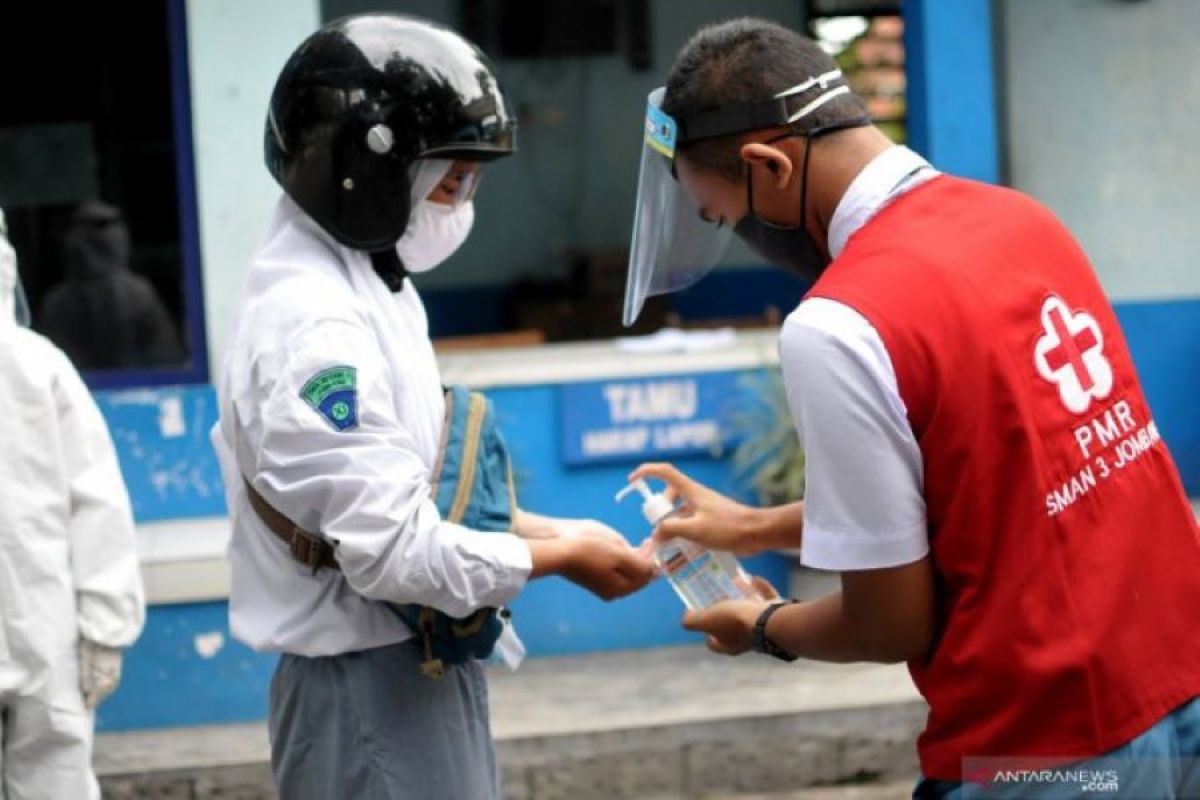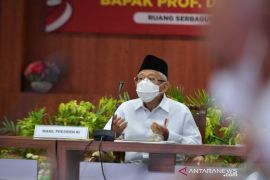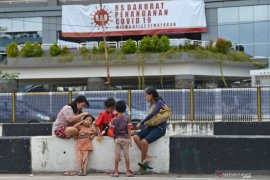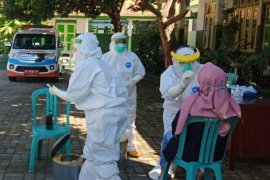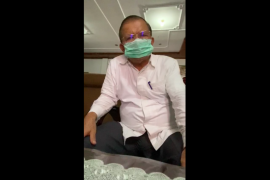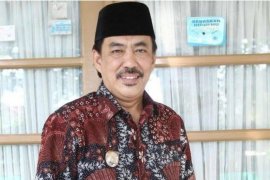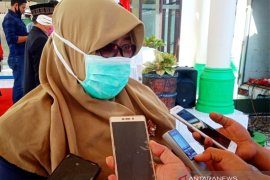According to the COVID-19 task force, the number of coronavirus cases involving children reached 12.6 percent, accounting for more than 250 thousand of the total 2,033,421 cases, as of June 23, 2021.
Data from the Ministry of Women's Empowerment and Child Protection shows that as of June 2, 2021, children from the 6-17 age group constituted 5.6 percent of the total COVID-19 cases, while 2.3 percent of children up to the age of five years were affected by COVID-19.
One out of every eight Indonesians exposed to COVID-19 is under 18 years old, and children fall in the category that is at risk of succumbing to the coronavirus, the data shows. One of every 83 Indonesians dying of COVID-19 is a child, the government data further shows.
Children can contract and die of COVID-19 based on the presence of comorbidities, such as obesity, tuberculosis, and hypertension, according to chief of the Indonesian Pediatric Society (IDAI), Aman Pulungan.
This should draw attention and become a reason to remain vigilant and for asymptomatic people to conduct self-isolation, he added.
The IDAI has recommended that 10 percent of the children be vaccinated against COVID-19.
Besides, all activities of children in the 0-18 age group should be conducted online, it has advised.
It has further recommended preventing children from venturing out of their homes, teaching them to remain disciplined in following the health protocols, immunizing them, and increasing breastfeeding to protect them from COVID-19.
The number of COVID-19 cases among children has become a cause for major concern for the government, which is preparing to open vaccinations for children in the 12-17 age group.
Health Minister Budi Gunadi Sadikin has earlier revealed that his ministry is considering the use of the Sinovac and Pfizer COVID-19 vaccines for children below 18 years of age.
Sinovac has been approved for the 3-17 age group, while Pfizer has obtained approval for the 12-17 age group.
Indonesia was expecting to receive Pfizer vaccines in June this year, and according to some reports, the Pfizer shipment from America has been delayed until August this year.
Meanwhile, the health ministry has deliberated with the Indonesia Technical Advisory Group on Immunization (ITAGI) over inoculating children against COVID-19.
The government is also monitoring how countries in Europe and Asia and also the United States are immunizing children against the virus.
Citing global data, Health Minister Sadikin said that 99 percent of COVID-19 cases in the under 18 age group can be cured.
China has approved the emergency use of the Sinovac COVID-19 vaccine for children as young as three, Sinovac Biotech Ltd has confirmed.
Canada, the US, and the EU have already authorized the Pfizer vaccine for children as young as 12, while the UK has recently approved the use of Pfizer’s vaccine for children aged 12 to 15 years.
Indonesia has so far administered vaccine jabs to nearly 13.5 million people, mostly using the Sinovac vaccines procured from China, and a few AstraZeneca vaccines obtained under the COVAX facility.
Following regulatory approval for the use of Sinovac’s vaccine, CoronaVac, in children, vaccinations will be rolled out for 12- to 17-year-olds in Indonesia soon, President Joko Widodo confirmed on June 28, 2021.
Related news: Parental behavior triggers COVID-19 cases among children: govt
"We are thankful for the issuance of the EUA (emergency-use authorization) by the BPOM (Food and Drugs Supervisory Agency) for the Sinovac vaccine, in which it was stated that the Sinovac vaccines are safe for 12-17 year olds, and vaccinations for children within the age range can soon be carried out," the President said in a press statement streamed via the Presidential Secretariat's YouTube channel.
Reiterating the importance of everyone's contribution in the effort to stem the spread of COVID-19, Widodo asked people to not hesitate to get vaccinated, and at the same time, strictly adhere to the health protocols.
He ordered all staff to work hard to maintain the distribution of one million vaccine doses every day until the end of July, 2021, adding the vaccination target will be doubled to two million doses per day from August, 2021.
Expressing his concern over the high mortality rate among children aged 10-18 years after contracting COVID-19, Vice President Ma'ruf Amin lauded the government's decision to roll out vaccinations for children.
"I welcome the start of a vaccination program for pregnant women, breastfeeding mothers, and children aged 12-17 years old. This decision is very appropriate, considering the mortality rate of COVID-19 sufferers in the age group of 10-18 years is quite high, reaching 30 percent," Amin said in his opening remarks on the occasion of the 28th National Family Day and the launch of vaccinations for pregnant women, breastfeeding mothers, and children aged 12-18 years, organized virtually by the National Population and Family Planning Agency (BKKBN), on June 29, 2021.
He praised the Food and Drug Supervisory Agency (BPOM) and the Indonesian Pediatrician Association (IDAI) for their role in implementing vaccinations for children in Indonesia.
The recent increase in cases among children has been attributed to a new variant of COVID-19 — the Delta variant, which tends to affect those under the age of 18. The Delta variant causes symptoms that are similar to the other variants of the coronavirus disease, including cough, runny nose, and fever.
Siti Nadia Tarmizi, spokesperson for vaccinations for the Ministry of Health, has also attributed the current spike in COVID-19 cases among Indonesian children to parental negligence in applying health protocols, with parents frequently taking children to shopping centers, restaurants, or to visit relatives.
The spokesperson called attention to the vital role of parents in protecting children from COVID-19 transmission.
Families play a crucial role in preventing COVID-19 infections, particularly among children and seniors, she said. Hence, they must always supervise their children, adhere to strict health protocols, and stay at home except for emergencies, she advised.
Related news: Health office cautions of mounting COVID-19 cases involving children
Editor: Rahmad Nasution
Copyright © ANTARA 2021
